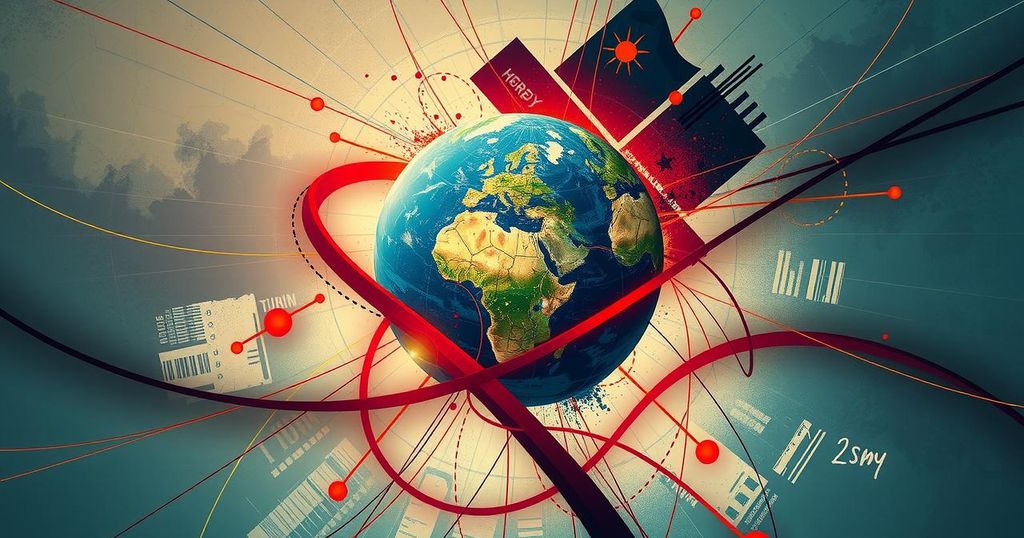The article examines the international turmoil unleashed by President Trump’s disruptive tactics, affecting diplomatic relations globally. Nations like Saudi Arabia and Denmark are scrambling to respond to his unpredictable policies, which include tariff threats and controversial statements about land. Leaders are concerned about the stability of longstanding alliances, including NATO and the WHO, amidst Trump’s chaotic maneuvers, reflecting an era of uncertainty in U.S. foreign policy.
The international community is currently engulfed in turmoil due to President Donald Trump’s unpredictable tactics. Countries such as Saudi Arabia, Denmark, and Colombia are grappling with the repercussions of his policy decisions, which have provoked a trade war with China and strained long-standing diplomatic relations. Nations traditionally allied with the U.S. now find themselves navigating a chaotic landscape where Trump’s actions threaten the very foundations of postwar global governance.
Trump’s approach resembles throwing a bag of marbles onto a stage, creating confusion for world leaders who have historically cooperated on global challenges. Even as nations like Australia attempt to remain detached from Trump’s disruptive statements, the impacts are far-reaching. Leaders express concern regarding his disruptive initiatives, including potential land grabs and tariffs that could further fracture international alliances.
Under Trump’s administration, significant institutions such as NATO and the World Health Organization face scrutiny and potential destabilization. His actions raise serious questions about the future of U.S. commitments to international partnerships, which are crucial since many countries depend on American aid for stabilizing their economies and humanitarian needs. The overarching sentiment among global leaders is one of apprehension regarding the reliability of U.S. support.
The chaotic climate has resulted in a flurry of responses, with some leaders seeking to establish clear stances against Trump’s rhetoric. The Danish Prime Minister recently defended her country’s alliance with the U.S. in response to perceived slights from the Trump administration. The broader EU discussions reflect a growing consensus among leaders to collectively respond to the challenges posed by the current U.S. leadership.
In Greenland, Trump’s remarks about U.S. interest in the island have ignited discussions about independence from Denmark. Local leaders expressed widespread concerns, emphasizing the need for self-determination away from U.S. or Danish control. This indicates that Trump’s comments have not only diplomatic implications but also ignite local sentiments regarding autonomy and governance.
Despite the challenges, some European far-right leaders see Trump’s policies as an opportunity to forge closer ties, highlighting the divided responses to his administration. While many leaders aim to establish a united front against tariff threats, there remains a faction that embraces Trump’s agenda. This division underscores the shifting dynamics within European politics influenced by U.S. actions.
President Trump’s chaotic and often controversial approach toward international relations has significantly altered the traditional diplomatic landscape. His actions provoke confusion among allies, threaten existing commitments, and inspire both concern and opportunism. The world grapples with ramifications stemming from U.S. policies that could transform longstanding alliances and strategies in the global arena. Overall, the unpredictability of Trump’s presidency is eliciting varied responses from a diverse array of international leaders.
Original Source: www.pbs.org




